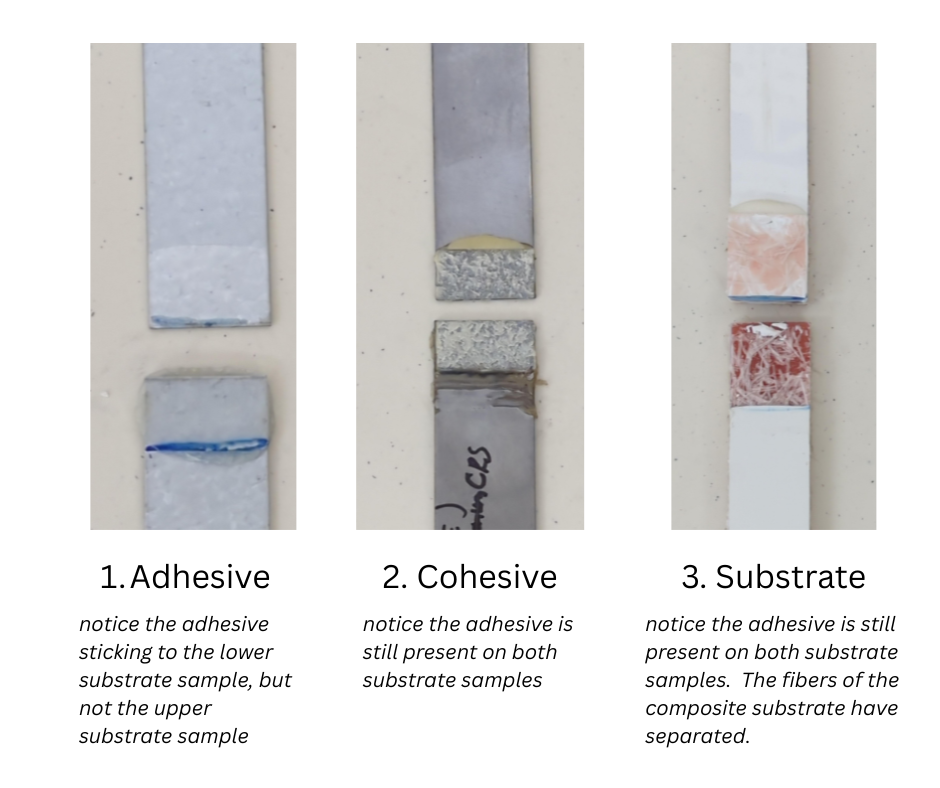by Rachel Trumbo, Technical Manager
Stronger structures. Tougher bonds. Built for the toughest environments.
When it comes to buses, trucks, trains, construction equipment, and other heavy-duty applications, strength isn’t just important-it’s critical. These assemblies must withstand punishing conditions: extreme temperatures, constant vibration, heavy loads, chemical exposure, and impact forces that would destroy weaker bonds.
That’s why strength is the most rigorously tested performance characteristic of any structural adhesive. But not all strength testing tells the complete story.
How We Test for Real-World Strength
At SCIGRIP, we run comprehensive strength evaluations:
- Tensile testing: Applies gradually increasing straight-line forces until bond failure
- Peel testing: Pulls bonded surfaces apart at increasing loads until separation occurs
Beyond just measuring failure loads, we analyze how bonds fail-which reveals everything about real-world performance:
- Adhesive failure: Bond separates from substrate surface
- Cohesive failure: Break occurs within the adhesive layer
- Substrate failure: The base material fails before the adhesive
Here’s what sets SCIGRIP apart: With tensile strengths reaching up to 5,000 psi, our MMA adhesives frequently exceed application requirements so dramatically that we observe substrate failure-meaning the materials themselves break before the adhesive bond does.

The Strength vs. Flexibility Challenge
Most adhesives force you to choose: maximum strength or flexibility. This trade-off exists because of molecular chemistry-think of crosslinked chains that create bond strength.
- High crosslinking
SCIGRIP MMA adhesives solve this dilemma. Our two-part formulations deliver the strength you need while maintaining flexibility for impact resistance, vibration dampening, and thermal cycling. Unlike simple mechanical adhesion, MMAs create actual chemical bonds with substrate surfaces essentially “biting into” the material for superior holding power while retaining internal flexibility.
Even Stress Distribution = Stronger Assemblies
Here’s another critical advantage: adhesives spread stress across the entire bond area rather than concentrating it at specific points like fasteners do. This distributed loading creates inherently stronger, more durable assemblies that resist fatigue failure.
Selecting the Right Strength Solution
When evaluating bond strength requirements, consider these key factors:
- Load magnitude and direction: How much force and from which angles?
- Dynamic conditions: Will the joint experience impact loads or constant vibration?
- Flexibility needs: Must the joint accommodate movement or thermal expansion?
- Application temperature: What conditions during application and cure?
- Service environment: Operating temperature ranges, UV exposure, chemical contact?
MMA adhesives are tested for UV resistance, temperature extremes, and chemical exposure -because we know your assemblies face real-world punishment every day.
Want proof of superior strength? See our comprehensive testing documentation: TestingSG400LSE PP-ALU TestingReport2.pdf
Discover how SCIGRIP can create stronger structures: Case Studies — SCIGRIP Structural Adhesives










